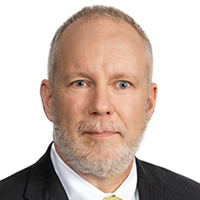
It’s no secret that longevity is increasing due to factors like advanced medical care and increased practice of healthy habits. In 2020, the U.S. Census released a report revealing that by 2060 life expectancy for the total U.S. population is expected to increase by about six years, to 85.6, from 79.7 in 2017.
So what does this mean for financial professionals and their clients? Well, in short, this means clients are living longer.
This also means there are opportunities for financial professionals to work with these clients longer, and to help them live better.
As a financial professional, it’s important to keep an array of new client needs top-of-mind as you look to adapt your practices. You may need to change client interactions to make sure you are meeting their short- and long-term needs, and you can start this process by taking the following three-step approach:
Ask Tailored Questions
Not general, but targeted and specific questions. The intention of these questions is to build an image of what retirement will look like for your clients. Retirement isn’t a one-size-fits-all package deal. Everyone’s vision of retirement will be different, so I have found it to be helpful to ask clients the following:
• Where do you plan on living in retirement?
• What do you plan on doing?
• With whom do you plan on spending your time?
These may seem like generic questions to you at first, but you will be amazed at the variety of answers and conversations that arise from them.
Your clients’ responses will range anywhere from “Here is exactly what I plan on doing in retirement” to “Gosh, I haven’t thought about it!”
Now you have your clients thinking and the conversation has already started. Use these replies to start building that image of retirement in your clients’ minds and help the vision become a reality. Start asking your clients these questions now.
Keep in mind that it’s never too early to start these conversations because, as we know, life gets in the way sometimes. Help your clients think and talk through their needs and wants. Leave room in the plan for any adjustments and changes that may happen along the way.
Adjust Mindset and Expectations
We, as a population, tend to overestimate a lot of things when making financial plans and planning for the future. Yet for some reason, we underestimate our life expectancy. We often compare our life expectancies to our parents’ and our grandparents’, without taking into consideration how drastically times have changed.
As a financial professional and your clients’ guide, work to teach your clients how to adopt a “marathon mentality.” Remind them that today’s and future generations are living longer and living healthier than ever before.
Folks over age 65 have a much more active lifestyle today than compared to prior generations. They may have better access to healthcare and medical resources. And they may have learned what bad habits to kick, along with healthier habits to adopt.
What this idea of longevity also means for your clients is they will be spending more money. Therefore, they will need to make sure they are saving as much as they can for this longer next phase of life — and you can be the person to teach them how.
Don’t Just Give Advice, Foster Education
Clients are usually looking for two things in a financial professional: Someone to educate them and someone to connect them to tools and resources that can make their lives easier.
Being your clients’ educator is a very important role. It’s quite common these days for clients to rely on the internet to answer their burning questions, which may not always be the most helpful and accurate resource.
For example, if you were to search “IRAs” on Google today, your results would come back with over 200,000,000 results. I would argue that a great percentage of these are out of date and/or are written by those who are not experts in this area, reporting on their own stories and opinions rather than the facts.
As a financial professional, you should have a list of reputable resources readily available on these kinds of topics that may be confusing or generally raise the most questions for your clients.
Share these resources with your clients on a timely basis. Send them articles as a follow-up to a previous conversation. Or if something you read made you think of your clients, pass it along with a note stating how you thought a particular article might be something they would find interesting or helpful.
This will be a great way to not only educate your clients, but to also strengthen your relationship with them and show them that you care about their needs and concerns.
You can help your clients plan for their futures by starting as simply as asking them questions and engaging in thoughtful conversations. Bring to light some of the topics that may not have crossed their minds previously, and share information in a format that is most helpful to each individual client.
There are so many important topics a financial professional can cover, but helping your clients to live longer and live better should always be the No. 1 goal.
Mike Lynch is a managing director of Applied Insights for Hartford Funds. In his current role, Mike is responsible for engaging and educating both financial professionals and their clients about current and emerging opportunities in the financial-services marketplace. These opportunities range from tactical strategies in areas such as retirement-income planning, investment planning, and charitable planning, to anticipating and preparing for long-term demographic and lifestyle changes.







